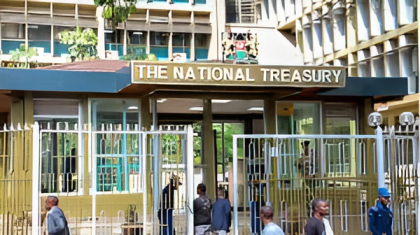Ministries to fund own data collection in Sh19 billion statistics overhaul

The move seeks to address persistent funding challenges that have hampered the country’s data infrastructure.
The government has unveiled a new data collection framework that will require ministries, departments, and county governments to fund their own statistical activities, marking a major shift from the current system where the National Treasury bears the full responsibility.
Under the revised structure outlined in the Second Kenya Strategy for the Development of Statistics (KSDS II) for 2023/24–2027/28, public institutions will become the central hubs for data collection, with the overall initiative expected to cost taxpayers close to Sh19 billion over the five-year period. The first phase, scheduled for implementation during the 2025/26 financial year, is projected to cost Sh5.8 billion.
Principal Secretary for Economic Planning Bonface Makokha said the new strategy is designed to strengthen the National Statistical System (NSS) by embedding statistical planning within the regular operations of all government entities.
“Statistics is a public good. The responsibility for producing and disseminating quality data lies squarely with the institutions that generate it,” said Makokha.
According to the strategy, all ministries, departments, agencies, and county governments (MDACs) will be expected to create their own statistics plans aligned to KSDS II and allocate funds for implementation through their respective budgets.
The move seeks to address persistent funding challenges that have hampered the country’s data infrastructure.
Makokha pointed out that limited use of new data sources, low levels of data disaggregation, and underinvestment in statistical systems have exposed the need for a more agile, integrated, and demand-driven approach to national data.
For example, in the 2024/25 financial year, the Kenya National Bureau of Statistics (KNBS) was allocated Sh867 million for general statistical operations, with an additional Sh119 million going towards census and survey evaluations.
Makokha explained that while the government will cover a portion of the costs, collaboration with development partners will be essential to bridge funding gaps. KNBS will spearhead the mobilisation of extra resources across the national statistical system.
He added that the long-term plan is to create a National Statistics Fund, in line with the African Charter on Statistics, to guarantee stable and long-term financing for the sector.
KNBS Director General Macdonald Obudho emphasised that KSDS II will promote wider use of administrative data by both public and private sectors, while incorporating modern techniques and technologies to improve data quality.
“KSDS II fosters enhanced utilization of administrative data across governments and businesses, integrates key advancements such as adopting a data maturity model, advancing innovation in data science, artificial intelligence (AI), and machine learning (ML) to align with Kenya’s AI readiness,” said Obudho.
The report supports the integration of economic, social, and environmental data to guide national development and policymaking. It also highlights the role of innovation and emerging technologies like AI and ML in improving the accuracy, timeliness, and relevance of official data.
Makokha reaffirmed the government’s focus on reforms that will enhance statistical quality through better inter-agency coordination, legal reviews, and increased investment in infrastructure.
He further called on civil society, the private sector, and international development partners to embrace the plan and treat data as a collective national asset.
“Let us take ownership of this data, invest in it, and ensure it reflects the realities and aspirations of all Kenyans,” he said.
